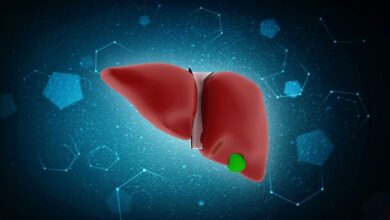5 common types of cancerous tumors that affect the digestive system
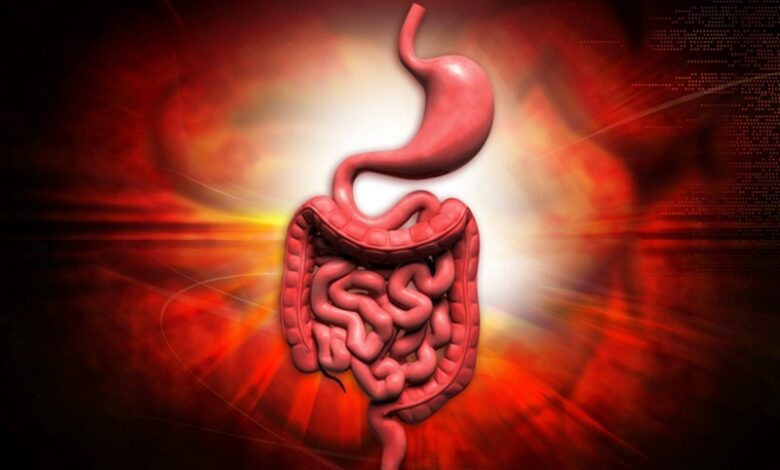
2
When feeling some moderate to severe pain in the digestive system, a state of confusion easily occurs between the occurrence of one of the types of cancerous tumors and diseases of the digestive system, and from here a state of silent disease development often occurs, which results in many complications and serious health repercussions. Therefore, today, through the lines of our next article, we will work on mentioning the 5 most common and widespread types of cancerous tumors that affect the digestive system.
Cancerous tumors of the digestive system
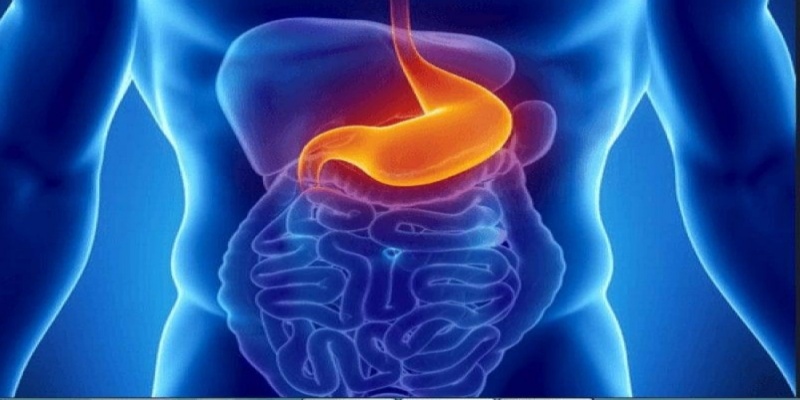

Cancerous tumors affecting the digestive system
When deciding to talk about common cancers that affect the digestive system, it is necessary to know that these types represent about 30% of all types of cancer, and usually affect both men and women. It is worth noting that this matter can be dealt with in a sound and healthy way if it is discovered early and with accurate treatment obtained at the appropriate time.
In general, digestive system cancers include cancer of the oral cavity, oropharynx, and anus, but when talking about the most common of them, we can mention cancers of the stomach, colon, rectum, liver, pancreas, and esophagus, and this is what we will mention later in an explanation.
Signs of gastrointestinal cancer


Signs of gastrointestinal cancer
Signs of gastrointestinal cancer are often inconsistent and can be confused with other diseases or common gastrointestinal diseases such as stomach ulcers and gastrointestinal disorders. Therefore, medical experts mentioned some warning signs that indicate the emergence of this disease to the surface, including the following:
- Feeling severe and unbearable pain in the abdominal area.
- Unexplained weight loss.
- Weakness of the body or exhaustion and fatigue.
- Bloody stool.
- There are some swellings in the abdomen.
- Intestinal disorders.
- Bloating and indigestion.
However, if the gastrointestinal cancer is only in its early stages, small tumors may not cause any specific symptoms. Therefore, patients need to be screened for gastrointestinal cancer so that they can detect the disease and thus get an appropriate treatment plan.
Common types of gastrointestinal cancer
First: Colon and rectal cancer
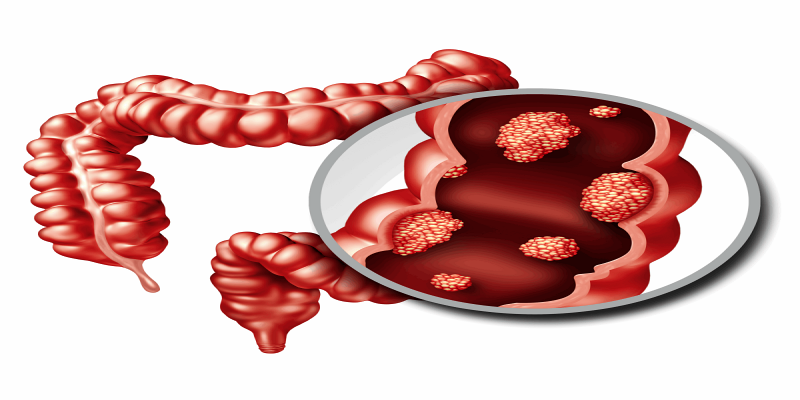

Colorectal cancer
First of all, we can talk about colon and rectal cancer. It is worth mentioning that this type of tumor usually does not have any signs of disease until it develops and reaches an advanced stage. It is important to know that it is one of the most dangerous types that directly affects the health of the digestive system.
To be more clear, this starts with benign tumors, then gradually turns into malignant tumors. Although it is a serious disease, if it is detected early, it can be controlled and overcome.
Colorectal cancer is most likely to cause symptoms in the distant metastatic stage, when the cancer is growing or spreading. The most common of these manifestations are diarrhea, constipation, flat stools that last for several days, complaints of anemia, rapid weight loss for unknown reasons, and loose stools. Bloody or dark.
Second: Esophageal cancer
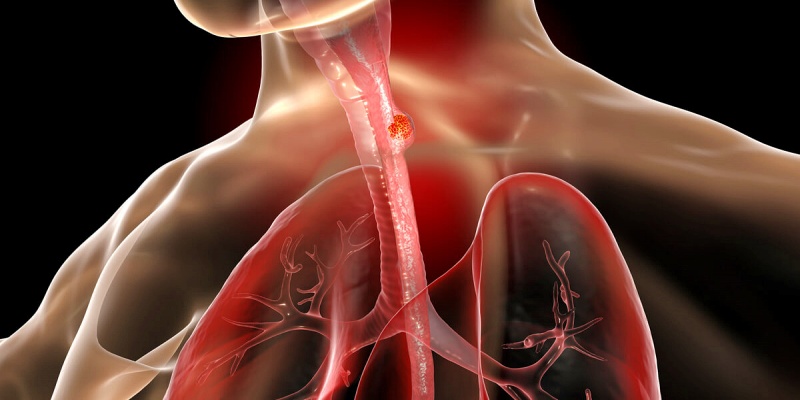

Esophageal cancer
Esophageal cancer is one of the most dangerous types of cancerous tumors, in which malignant cells attack the lining of the esophagus so strongly that it spreads out of control. But what is more difficult than that is that this disease in its early stages appears without any symptoms.
Therefore, the majority of patients are detected when the cancer reaches the advanced or final stage, where it appears through a feeling of choking, difficulty swallowing food, a feeling of entanglement in the esophagus, and pain in the chest area behind the sternum when swallowing.
It is also worth noting that some of the symptoms may also appear when the tumor invades other organs, such as:
- Cancer that invades the trachea and causes air leakage, cough, and shortness of breath.
- Invasive neuroendocrine cancer that affects the larynx and causes hoarseness.
- Cancer that invades or spreads far to other sites, and then causes suffering from pleural effusion, pericarditis, chest, abdominal and bone pain, etc.
Third: Pancreatic cancer
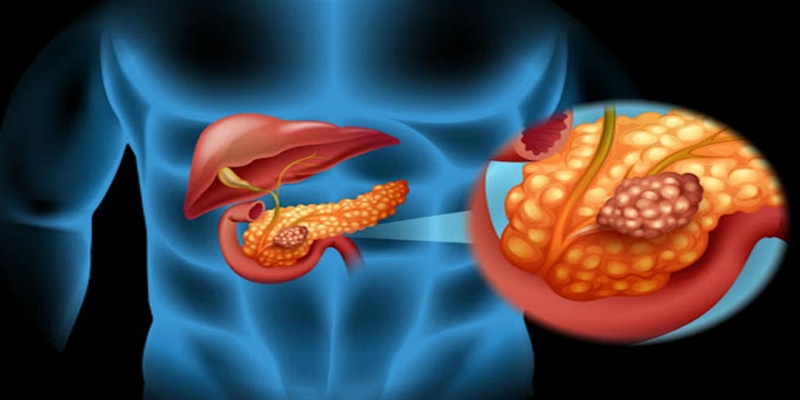

Pancreas cancer
In the case of pancreatic cancer in its early stages, this disease usually does not have any clear symptoms until it develops into a severe stage full of many complications.
Therefore, early detection of the disease is very difficult without any regular medical examinations. Therefore, every person needs to take effective preventive measures to avoid this completely unsafe situation, which is the need to quit smoking, maintain a healthy weight, build a balanced diet and follow all healthy lifestyles.
Fourth: liver cancer
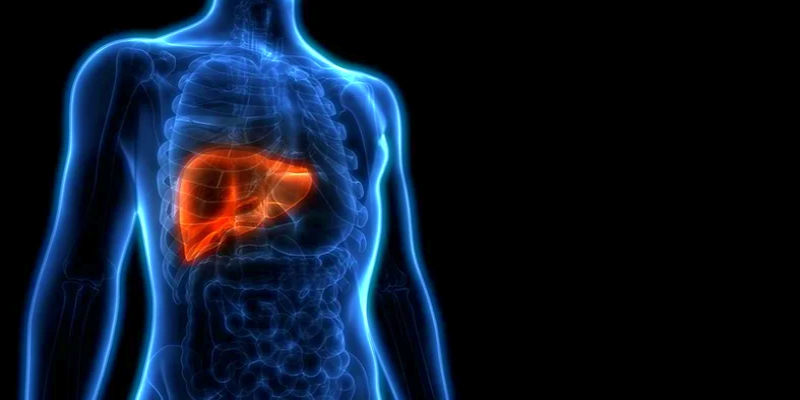

Liver Cancer
Regarding liver cancer, it should be known that this type of tumor occurs as a result of exposure to liver infection, chronic hepatitis B or C, cirrhosis, and excessive consumption of alcoholic beverages.
Hence, regular screening for hepatitis infection, vaccination against hepatitis B, and making some adjustments to daily lifestyles such as reducing the use of steroids and maintaining a healthy weight are the most important key factors in preventing this deadly type of cancer.
Fifth: Stomach cancer


stomach cancer
This type of cancer is quite similar to the other types of digestive system cancer mentioned above, which often have no clear symptoms and are easily confused with many other diseases. It is worth noting that if stomach cancer is detected early, treatment will become easier.
It is worth noting that the symptoms of this disease in its early stages are as follows:
- Unbearable abdominal pain.
- Belching, heartburn, and feeling bloated after every meal.
- Abnormal bowel movements.
- Loss of appetite, not eating well.
- Sudden weight loss.
- Body weakness.


